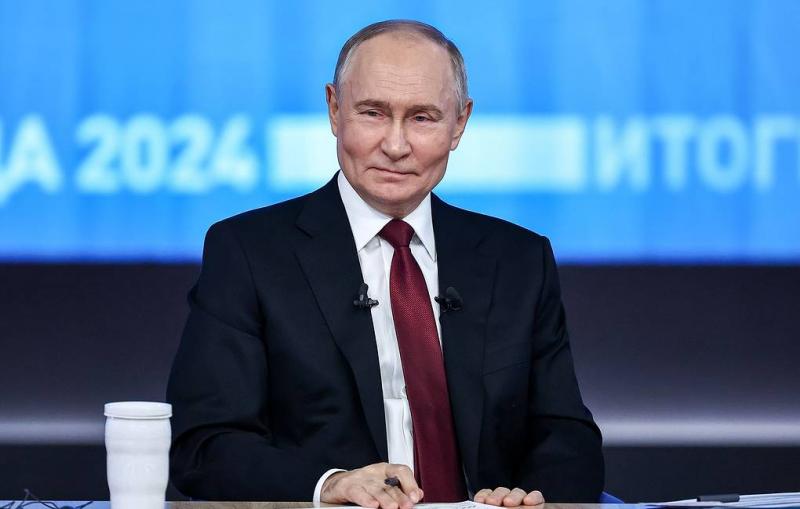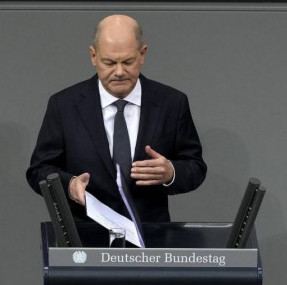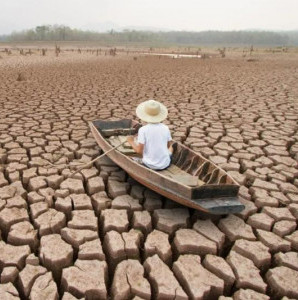
- Press review: Israel and Hamas near a truce while Zelensky drafts a new negotiation plan
- Press review: Who benefits from Russian general's murder as Trump lacks Kremlin strategy
- Press review: EU imposes new anti-Russian sanctions and Russia braces for NATO conflict
- Press review: South Korean president impeached as Ukraine turns to foreign mercenaries
Russian President Vladimir Putin discussed Russia’s present and future endeavors during the year-end news conference; the share of payments in Russian currency for exports to Europe reached a new milestone, exceeding 65%, and Tehran could face protests amid an energy blackout. These stories topped Friday’s newspaper headlines across Russia, according to TASS news agency.
Media: Putin sums up results of 2024 for Russia and outlines future goals
Russia is becoming a truly sovereign country, Vladimir Putin said during the combined Q&A session and his annual press conference. By the end of the year, the country's GDP growth could reach up to 4%, and real wages were projected to increase by 9%. Commenting on the Ukrainian conflict, the Russian president once again expressed readiness to negotiate based on the Istanbul agreements and mentioned that he planned to meet with US President-elect Donald Trump.
The press conference garnered significant attention from numerous TV channels and media outlets worldwide, attracting hundreds of journalists from both domestic and international organizations. Russian citizens also had the chance to pose questions to the president. The event lasted for 4 hours and 27 minutes, during which the head of state addressed 76 questions.
Traditionally, the president began his address with economic indicators. By the end of the year, the country's GDP growth could reach 4%, and over two years, it had amounted to approximately 8%. Russia's economy now ranks first in Europe and fourth globally in terms of purchasing power parity, with China, the US, and India ahead. However, inflation in Russia remains a significant concern, standing at around 9.2-9.3%. The authorities are actively working to slow it down.
If current trends persist, inflation is expected to ease in the first quarter of 2025, according to Anton Tabakh, chief economist at Expert RA. However, the expert pointed out that the government's options are constrained by external factors, including those related to foreign policy. Raising interest rates would help curb inflation but could also negatively impact investment, said economist Klimanov.
According to Putin, Russia is also defending its sovereignty within the framework of a special operation: intense fighting with units of the Ukrainian Armed Forces continues in the Kursk region. The president emphasized that there is now "the largest graveyard of NATO equipment in the world."
Summing up the year, Vladimir Putin reiterated that Russia is open to dialogue on Ukraine without preconditions, but only in alignment with the Istanbul agreements and the realities on the ground. He noted that Russia seeks a long-term peace, and suggested that Donald Trump, who is set to return to the White House on January 20, could play a constructive role in resolving the conflict.
So far, instead of de-escalating, the Ukrainian conflict has intensified, particularly after the West authorized strikes using long-range weapons deep into Russian territory. Russia responded to these attacks with its latest weapons, including the Oreshnik medium-range ballistic missile.
The issue of Syria was also addressed during the session. "It will be possible to assess the prospects of maintaining Russia's military presence in Syria after March 1, when new elections are scheduled to take place, or possibly even by mid-2025," said Vladimir Sazhin, a senior researcher at the Institute of Oriental Studies of the Russian Academy of Sciences. He noted that under Assad, Moscow had secured an important strategic ally in the region. However, the situation has been complicated as the new Syrian leadership has not yet clarified its position on future relations.
Kamran Gasanov, an expert at the Russian International Affairs Council, said clarity in Russia-Syria relations will come only after a stable government is established in Syria. "Overall, Russia's military-strategic positions under the new authorities will likely not be as strong as they were under Assad," he added.
The most debated topic during the event was Russia’s special military operation and the support provided to its participants, political scientist Vitaly Ivanov told Vedomosti. The special operation remains a top priority, though issues such as healthcare, education, housing, and municipal services continue to concern the population. However, priority attention was given to more pressing issues, the expert noted.
The main audience for the Q&A session was the Russian people, although some of Putin's messages were directed toward the collective West and, at times, personally addressed to Vladimir Zelensky, director of political analysis at Insomar Viktor Poturemsky told Vedomosti. He suggested that the event was structured to demonstrate Putin's "measured and balanced stance."
Izvestia: Share of ruble in settlements for European exports grows to record 65%
The share of payments in Russian currency for exports to Europe surpassed 65% in the third quarter and achieved a record for the entire period of statistics, according to data from the Bank of Russia. Transactions in rubles are increasing in trade with other regions, as well as in payments for imports.
The situation shifted significantly in 2022, when sanctions were imposed on Russian banks, and Russia responded by requiring energy resources supplied to unfriendly countries to be paid in rubles. All this has elevated the importance of the national currency on the global stage, Izvestia writes.
The share of the ruble in European settlements for Russian exports rose to 65.3% in the third quarter of 2024 - the highest figure since 2019, according to data from the Bank of Russia. Meanwhile, the share of settlements in the currencies of unfriendly countries declined to a minimum of 27.9%. The remaining 6.8% were conducted in other currencies.
Ruble transactions are expanding due to sanctions that complicate conducting transactions in Western currencies with Russian financial institutions, analyst at Finam Alexander Potavin told Izvestia. However, the need for trade relations with Russia persists, so all parties are seeking new ways of interaction.
The ruble is most actively used in settlements with Armenia, Belarus, India, and African countries - currently Russia's main trading partners, Head of the OECD Center at the Institute for Applied Economic Research of the Presidential Academy Antonina Levashenko noted.
Russia is also developing strong ties with the BRICS and EAEU countries, according to leading analyst at Freedom Finance Global Natalya Milchakova. The state also trades in national currencies with China and Turkey, she added. Given the trends towards de-dollarization, all BRICS countries are expected to transition to settlements in their national currencies in 2025-2026, and eventually adopt state digital currencies, she said.
"The dynamics of export and import settlements in rubles indicate that the Russian economy is gradually becoming more independent and self-confident, and the ruble has emerged as a popular currency not only within the country, but also internationally," Associate Professor of the Department of World Financial Markets and Fintech at the Plekhanov Russian University of Economics Venera Shaidullina told Izvestia.
Nezavisimaya Gazeta: Tehran may face protests amid energy blackout
Iran is grappling with a severe energy crisis - the authorities have implemented measures to cut off electricity to households in order to support industry amid a growing deficit. Experts told Nezavisimaya Gazeta that Tehran lacks sufficient fuel to produce electricity. The austerity measures have frequently triggered protests on Iranian streets in the past.
The blackouts and Tehran's calls for energy conservation are seen as essential steps, Iranian government spokeswoman Fatemeh Mohajerani said. According to her, such austerity measures are dictated by the need to safeguard the country's industrial production, which could grind to a halt due to a lack of resources.
As Emirati publication The National highlighted, Iran has some of the largest natural gas reserves in the region, but its energy sector has long struggled with insufficient investment, which it blames on years of sanctions.
Opposition platforms warn that continued austerity measures during low temperatures could lead to widespread protests in Iran. The last "fuel" riots shook the country in 2019-2020. At that time, the wave of discontent quickly escalated into an anti-government movement with calls to overhaul the political system.
Expert at the Russian Council on International Affairs Nikita Smagin told Nezavisimaya Gazeta that Western sanctions have served as a crisis multiplier, worsening the overall situation.
"Initially, the problem was that every summer in Iran there were blackouts during peak hours because the infrastructure could not cope with the rising levels of consumption. This was a major issue that more than once led to significant protests in Tehran and other cities," he said.
Currently, however, the main difficulty is different - while the capacities have been improved, the country does not have enough fuel to produce electricity, the expert added.
"So, given the ongoing processes in the region, combined with the legitimacy crisis that remains in Tehran, all of this looks quite alarming. If the authorities cannot effectively address this, then it could well lead to protests. The question is how extensive they can become," he concluded.
Izvestia: Which western air defense systems could counter Russia’s Oreshnik
At the Q&A session combined with his annual press conference, Russian President Vladimir Putin proposed holding a "technological duel" between the Russian medium-range missile system Oreshnik and Western air defense and missile defense systems, stating that the enemy has no chance of shooting down a hypersonic missile. Experts shared with Izvestia what anti-missile systems Western countries could hypothetically deploy against the new Russian development.
The enemy has no chance of shooting down the Oreshnik missiles, the president said, responding to the opinion of some foreign experts that Western missile defense and air defense systems can allegedly do this at the launch stage. Furthermore, he said that the range of the Russian complex reaches up to 5,500 km. The Supreme Commander-in-Chief also noted that the Oreshnik is a new type of weapon built on advanced Russian developments.
The set of missile defense and air defense systems that can at least theoretically counter the Oreshnik is quite limited, according to the editor of Military Russia, Dmitry Kornev, who told Izvestia.
"First, this includes the US-made Patriot complex. We must understand that the Patriot operates in a certain sector, and to ensure enhanced capabilities for this system, a massive deployment is required. That is, a significant number of launchers must be placed in several echelons, with their zones of destruction overlapping one another," he said, adding that the Patriot is not the most advanced system in the West. The expert also noted the importance of the THAAD system.
The expert added that the Israeli Arrow missile defense system is also considered quite effective. "But the hypersonic warheads used by Iranian missiles reached targets in Israel," he recalled.
There is also the Aegis missile defense system — which has both sea-based and land-based variants, research fellow at the Institute of World Economy and International Relations of the Russian Academy of Sciences, Ilya Kramnik, told Izvestia.
"It is impossible to deploy it in Kiev — a ship cannot be brought there, and it takes several years to build a stationary system," he said.
US President-elect Donald Trump and his future Vice President JD Vance have publicly opposed the approval of the continuing resolution (CR, i.e., short-term funding) proposed by Republican Speaker of the House Mike Johnson, according to their joint statement. They argue that the Democrats are bluffing to force the Republicans to make concessions. Trump also demanded that the new version of the bill include an increase in the US debt ceiling. He emphasized that, while he does not see this measure as beneficial, he would prefer to address it now rather than confront the issue later, Vedomosti writes.
Both Trump and Vance expressed support for financial aid measures for farmers (an extension of the 2018 law) included in the current version of the document, but called the lack of concessions to Democrats and raising the debt ceiling "the only way" to meet these obligations. Trump also threatened to end the political careers of Republicans who do not heed his advice.
According to NBC, Johnson may offer a "clean" continuing resolution—i.e., a budget at the same level as the previous one with no increase in spending—as a backup option.
Trump is determined to provoke a government shutdown, chief researcher at the Institute for US and Canadian Studies at the Russian Academy of Sciences Vladimir Vasiliev told Vedomosti. According to the expert, the future president does not want to work with a budget approved under Democratic conditions. He instead seeks to delay and approve the budget not only in the Republican House but also in the Republican Senate. "However, we cannot rule out that they will reach an agreement at the last moment," Vasiliev said.
The expert suggested that part of the ultra-conservative wing may attempt to remove Johnson from office during the budget disputes, as they remain dissatisfied with his cooperation with the Democrats over the past year.
Malek Dudakov, a political scientist specializing in America, told the newspaper that Trump might be intentionally steering the government toward a shutdown. According to him, the future president aims to highlight the dysfunction of the current Congress to quickly secure an agreement in January and craft an image of victory for himself almost from the start of his presidency.
TASS is not responsible for the material quoted in these press reviews









